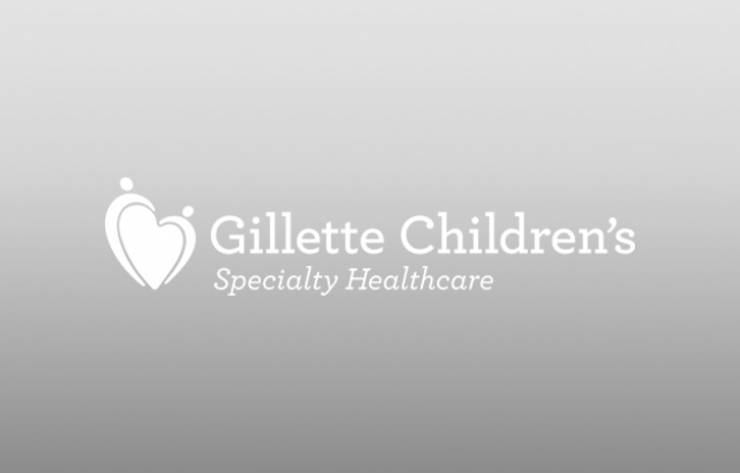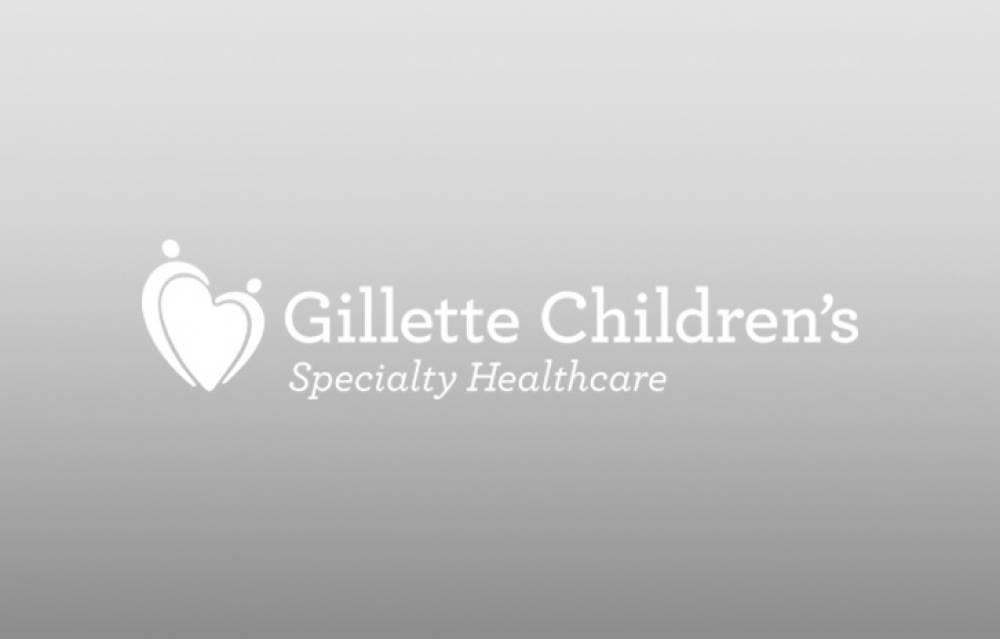-
{care_team_members status="Open|hide from care team page"}
-

{care_team_members:ct_first_name} {care_team_members:ct_last_name}
{care_team_members:ct_full_title}
{/care_team_members}
person:channel_short_name: {person:channel_short_name}
person:
title: {person:title}
-
{links}
{/links}
No category selected to display locations. Locations Dynamic
-
{locations}
- {locations:title} {/locations}
-
{widget}
{widget:widget_content}
- {widget:widget_content:tab_title} {/widget:widget_content} {/widget}
Kent Dudley pushes a wheelchair up a ramp and into his specially equipped passenger van. He straps his child into the van, but he doesn’t linger. He has two more children waiting their turns to be secured in the vehicle for the monthly four-hour drive to Gillette Children’s. It’s not an easy task, but Dudley says he wouldn’t have it any other way.
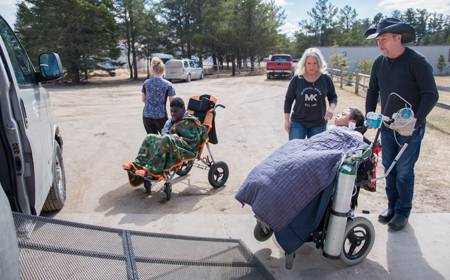
Shantel and Kent Dudley are the parents of 13 children—seven biological and six adopted children who are considered to be medically fragile.They live outside of Bemidji, Minnesota and say thanks to the coordinated care program at Gillette they’re able to give their children the lives they deserve.
The younger children range in age from 4 to 14 and have a mix of serious medical conditions such as cerebral palsy, microcephaly, and scoliosis. Through a pilot program, funded by the Minnesota Department of Health, Gillette is providing a highly focused care coordination model for patients like the Dudley children, partnering the family with a dedicated team that includes a registered nurse, a scheduler and a social worker.
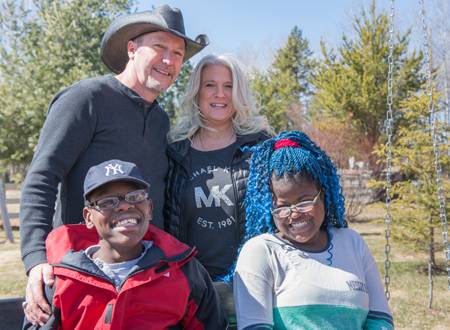 Shantel Dudley appreciates this high level of care.“When you’re the parent of several kids who have special needs you feel like you’re constantly fighting with somebody to make sure your kids are getting what they need,” Dudley says.“But there’s no fighting with Gillette.They help guide me and let me know about resources available to make life easier for my children.”
Shantel Dudley appreciates this high level of care.“When you’re the parent of several kids who have special needs you feel like you’re constantly fighting with somebody to make sure your kids are getting what they need,” Dudley says.“But there’s no fighting with Gillette.They help guide me and let me know about resources available to make life easier for my children.”
“It’s nice not having to be on the phone every day trying to coordinate things with doctors,” Dudley says.“The coordinated care team works closely with us. It’s taken a lot off of me so I can spend more time being a mom and less time being a family administrator,”
Dudley wants her family to be an example and to encourage others to adopt medically fragile children. “We tell people in our area that Gillette is a wonderful partner,” Dudley says. “Without Gillette we wouldn’t have the lifestyle we have.”
Providing Coordinated Care to Families across the State
Helping families like the Dudleys has been part of the Gillette mission since its founding in 1897. In 2014, the Minnesota Department of Health awarded Gillette a three-year $480,000 grant to further help families navigate the sometimes difficult scheduling issues involved in getting treatment for their children who have complex medical conditions. The program provides assistance to families living in rural areas, where specialty health care services are sparse. It also helps families who have recently immigrated to the U.S. or have limited English proficiency.
Although coordinated care isn’t a new concept at Gillette, the MDH grant opens up new opportunities—to improve patient tracking, for example, and to pilot new approaches to care. Gillette has partnered with four primary care clinics across Minnesota and the team works closely with 36 families currently enrolled in the coordinated care program funded by the grant.
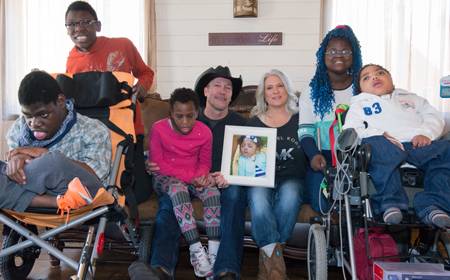 Gillette also joined the Minnesota Department of Human Service's Integrated Health Partnerships (IHP) in 2015. Gillette is now part of the state’s groundbreaking approach to delivering quality health care more efficiently to families across the state.
Gillette also joined the Minnesota Department of Human Service's Integrated Health Partnerships (IHP) in 2015. Gillette is now part of the state’s groundbreaking approach to delivering quality health care more efficiently to families across the state.
The IHP is comprised of 19 provider groups and more than 340,000 enrollees in Medical Assistance—the state’s Medicaid program—and MinnesotaCare, a program for residents who don’t have access to affordable health care coverage. In 2015, 60 percent of all Gillette visits were from patients who were eligible for or covered under Medicaid.


